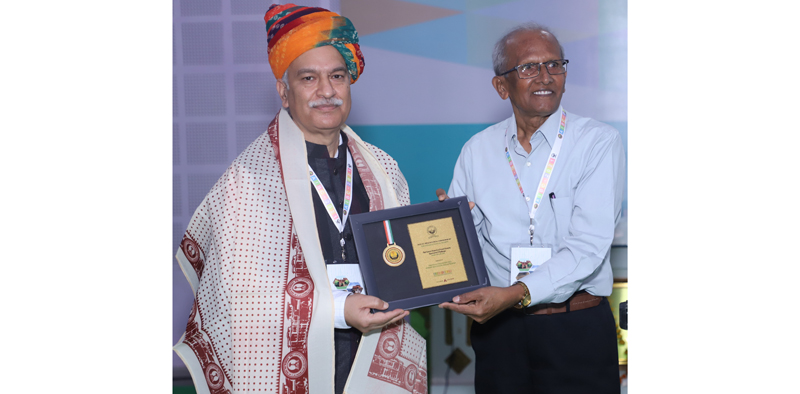Excelsior Correspondent
JAMMU, Oct 25: Prof Manoj Kumar Dhar, Vice-Chancellor, University of Jammu was awarded Prof Arun Kumar Sharma Memorial Award by the Indian Botanical Society.
The award carries a citation and a cash award. The award was given during the recently concluded 44th National Conference of the Indian Botanical Society organized by the Department of Botany, Jai Narayan Vyas University, Jodhpur.
Prof Dhar is the highly trained Molecular Cytogeneticist. He has discovered a novel Chromosome and has provided first-ever experimental evidence for the origin of B Chromosomes. This work has been widely accepted and cited by Scientists in the field, throughout the world.
The Indian Botanical Society has completed its 100 years of existence as it was established in 1920. It is one of the prestigious Society of Indian Botanists and has had many eminent persons as its President and other members. Currently, the Society has 2332 Life Members and 19 local chapters.
The 44th Conference was attended by about 200 delegates drawn from various parts of the country. Prof Dhar also delivered the Prof A K Sharma Memorial Lecture.
Prof A K Sharma (1924-2017) was a doyen of Indian Botany, popularly called AKS and considered by many as the father of Indian Cytology. He is known for his enormous contribution to Cytogenetics, Cell Biology, and Cytochemistry. A recipient of Padma Bhushan in 1983 and Shanti Swarup Bhatnagar Prize, the highest Award in Science in India, Prof Sharma has many discoveries to his credit in his field. He has authored numerous research papers and articles and authored several books which are being used throughout the world.
In his lecture, Prof Manoj Kumar Dhar talked about “Chromosomes, Genome and Genomics: the need for an integrative approach” and highlighted the growth and development of Plant Cytogenetics and its relevance in the present day Genomics studies especially crop plants. He elaborated about the integrated approach being followed in his laboratory about the genetic improvement of important plants such as Apple and Saffron.


